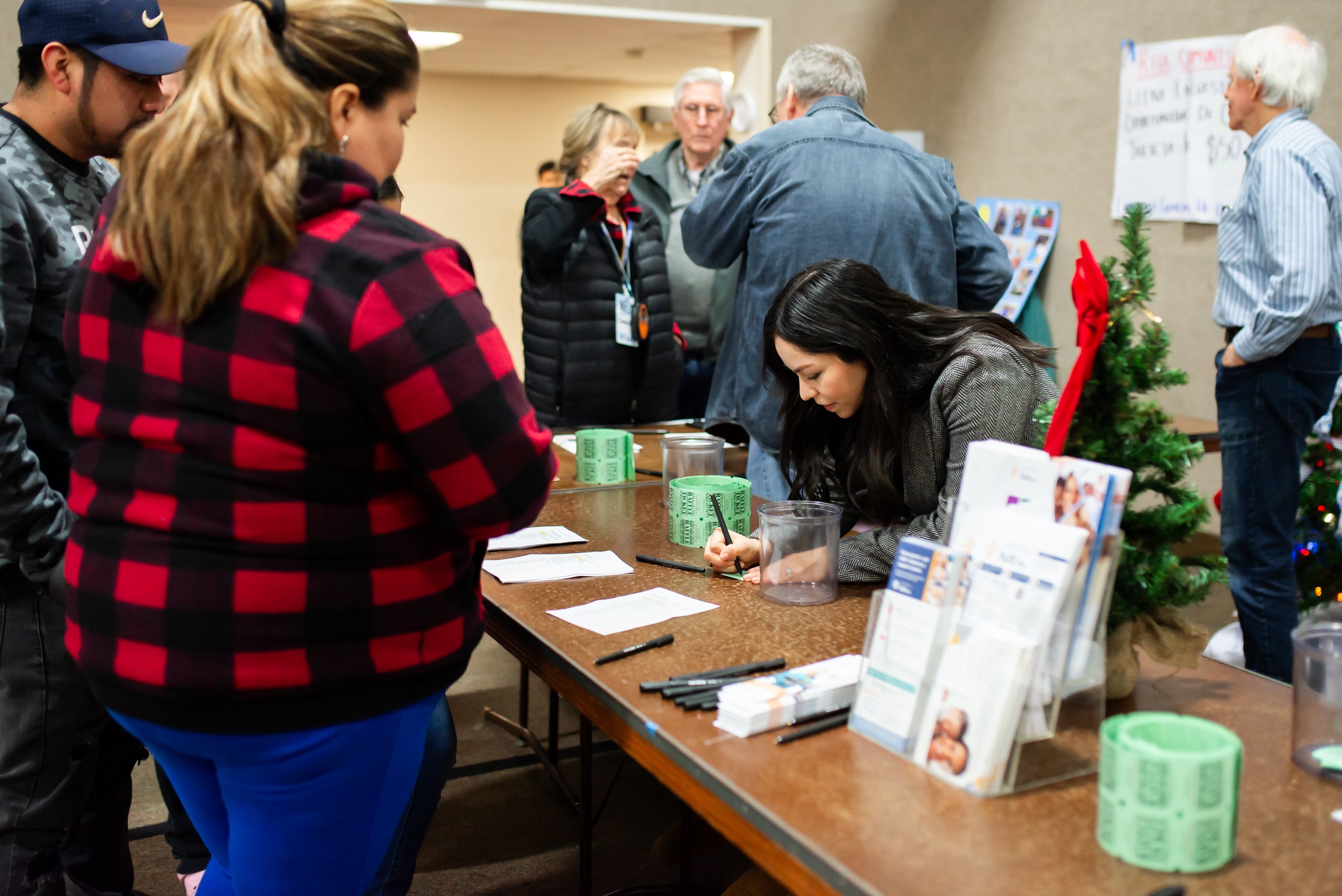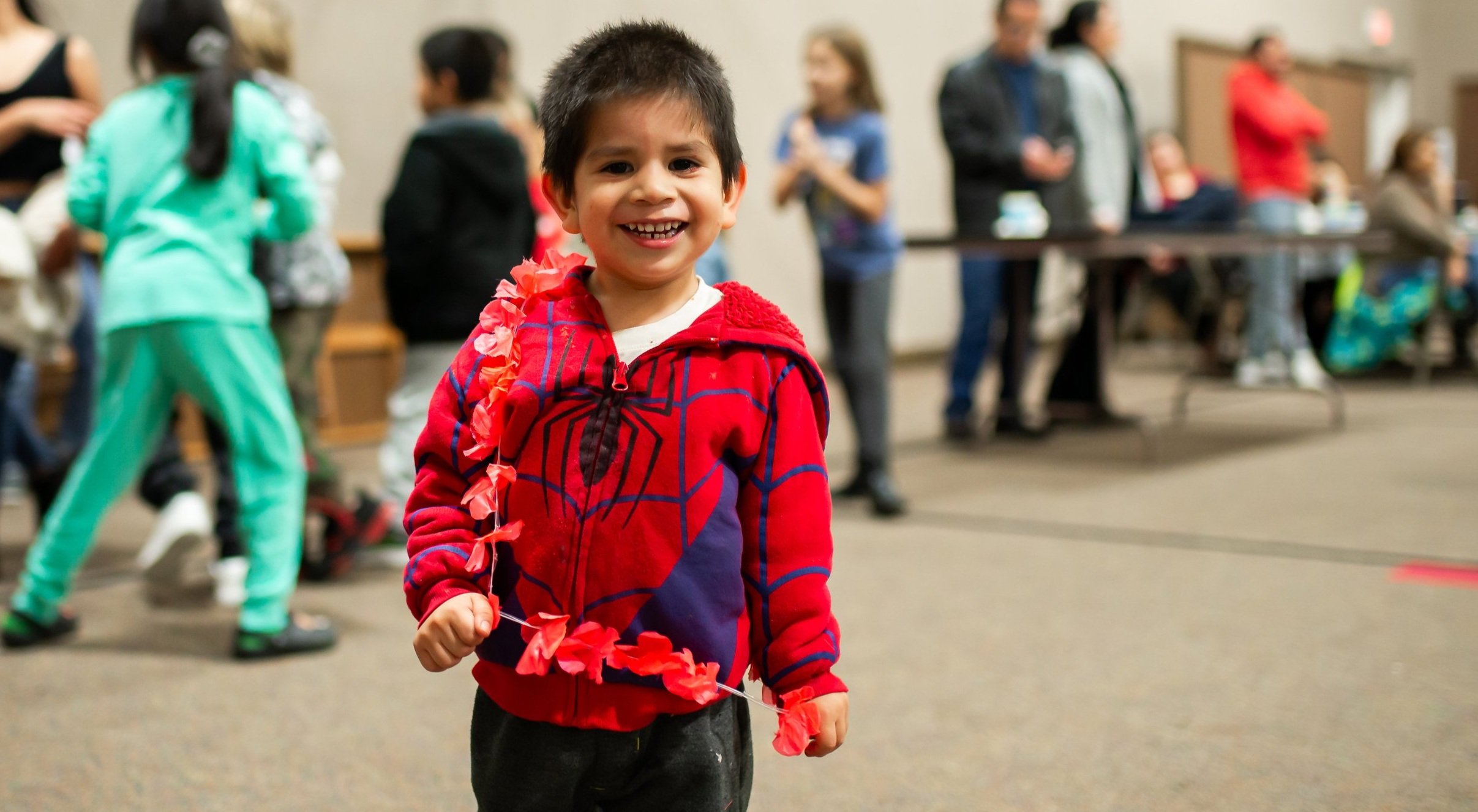Families are Speaking Up and Good Things are Happening!
Written by Tim Buckley, February 2024
Highland residents complete an anonymous needs survey at the Highland Neighborhood Family Council International Multicultural Night in December 2023
Over the past couple of years, Neighborhood Family Councils (NFC) have asked families to speak up about what they need to better protect and nurture their children. More than 850 families have told us what needs were most important to them:
Affordable housing assistance
Affordable/free childcare or preschool programs
Stress management
Money management
Mental and emotional health
Economic stability
Immigration legal advice
Learning about other available resources for us
Looking at the results from seven surveys, from three neighborhoods, in just over a year’s time (12/22 – 1/24) two things jumped out.
You get a bit of bad news/good news from reading the cumulative results. The bad news first: stress management and mental/emotional health were consistently in the top three on that list. What struck us, however, was that the two are probably related! Stress could be the stimulus or the result of emotional and mental health issues.
When you add together the scores from those two: stress management and mental/emotional health, the responses are almost double the next most important needs mentioned (affordable housing assistance). When you think about it, the cost of living probably contributes a chunk of that stress.
Part One of the Good News
The Kennedy NFC, with support from CBEL, has begun two free classes, both aimed at giving families the opportunity to explore, learn, and share about the things that create mental and emotional challenges.
Recognizing, Understanding and Healing from Trauma was offered twice in February, and probably again and again until there is no more call for it. Veteran trauma resilience teacher and mentor Rick Newton facilitated the classes.
“When trauma happens, a new path begins,” said Oakland University researcher and professor Kanako Taku. “This path may contain sorrow and despair, but we are not alone. In spite of trauma, we grow as people.”
Making Difficult Conversations Easier was offered at the same place and time. Eduardo Angulo, veteran community activist, educator, mentor and CBEL founding advisor facilitated this class, in Spanish and English.
The classes took place in the evening, with a 5:30 gathering for a meal together. While the adults met, the children are cared for in another room. (Affordable childcare is also listed as one of the top three issues families face).
At the end of the evening, with new skills, trusted relationships, happy kids, and a $25 gift card from the NFC, the 32 students left with energy and hope. Another round of these classes are being offered in April for residents of the Hallman Neighborhood.
The Second Bit of Good News
The other surprise in the survey tally was under the heading: Learn about Resources. At the beginning of 2023, at the Kennedy Winter Wonderland event, about 10 percent of responders said it was an important need. A year later, at the same event (presumably with many of the same people attending) the response for learning about more resources was TWICE that amount (20% vs 10%). In fact, it was a more popular choice than any other!
Perhaps you cynics and statisticians would say “bah” to that kind of conclusion, based on two samples a year apart from the same event. But here’s the thing: the same thing happened with the Hallman/Northgate NFC questionnaire, with an entirely different mix of families. In December of 2022, respondents preferred learning about resources less than any other category. A year later, that category was also at the top of the list, nearly double the year before (17% vs 11%)
What to make of this, without making too much of it? First, during that year, more than 60 participating outside resource providers had taken part in NFC events, where more than 500 people regularly attended. So consider these possibilities for what this statistic might suggest:
People became aware of our rich array of resources and want more
Families accustomed to isolation found a wealth of welcoming organizations
Knowing that more resources are available, families feel more empowered
Finding additional resources gives people a sense of hope instead of despair.
At the core of CBEL’s philosophy of Building Community Resilience is the
notion that neighborhoods – the voices of those living the experience of
stress and financial challenge – are key to building resilience. Another key is that everyone has resources, and everyone needs resources. Those who have must be connected to those who need in a way that respects each other’s dignity.
Maybe that’s another takeaway from this survey work, somewhat intangible but evident nonetheless: the birth of resilience is in building trust, safety, connection and purpose into the batter. Oh, and fun. We must have fun while becoming resilient.


